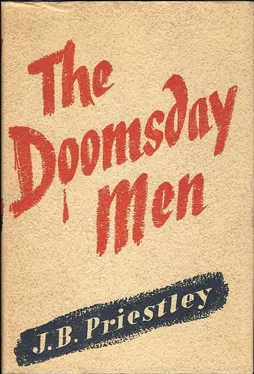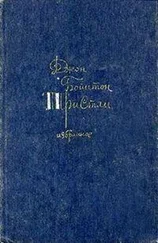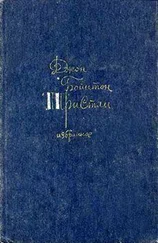But this, after all, was a girl, however strangely she might behave. “Go on then. I’ll be quiet.”
“I want to say something I’ve never said to a girl before. I didn’t intend to say it, didn’t know, in fact, that I could say it, and if you think I’m a bit barmy-all right. But it’s this. We’ve done nothing but play some tennis together-and, after all, I’ve had plenty of good tennis partners in my time-and I don’t know anything about you, and apparently you don’t want me to know-and, if you like, it’s all crazy-but the fact is, I seem to have fallen in love with you. I know now-it’s the real, genuine thing. It’s never happened before like this, and I have a feeling it won’t happen again. It looks to me as if I’ll go on thinking about you for a long, long time. I don’t want to, but it looks as if I’ll have to. And I don’t know why. You’re beautiful, I think-really beautiful-but I’ve met beautiful girls before, and this didn’t happen. There’s something about you-and I’ll be hanged if it’s the way you behave-that does something very strange to me. I wish to God it didn’t. And now I’ve said what I wanted to say-just some more of the old stuff you’ve had so much of-”
“No!” She was vehement again, but now with a very different tone. “I didn’t mean-this. This is different.”
“I see. Well-you know now how I feel. And, I suppose, that’s that.” He made a movement, as if to get out, but she stopped him, and then remained, leaning towards him a little, looking at him with great dark eyes. He could see her face now, for the light from the lamps along the curved roadway to the hotel found its way into the car. He was not to forget the look on her face for a long time. But having stopped him, she did not speak.
“It’s all-quite hopeless, I gather.” He tried to be easy.
She nodded, tragically. “Yes. But not-in the way you think-”
“Why, then?”
“I can’t explain.”
“I see,” he replied shortly, for he felt he deserved a little more confidence from her than this.
“No, you don’t-and it’s no use getting mad at me again-specially now-after what you’ve said.” Her voice trailed off as she looked, at once searchingly and sadly, at him again. Then she said, almost to herself, and almost as if about to repeat something memorised carefully already: “Malcolm Darbyshire.”
“That,” he observed, rather bitterly, “is the name.”
“Don’t talk to me that way now,” she said hastily. “I’ve got to go in a minute-and go for good.” She seemed to study him again. “I like you,” she added slowly. “I like you a whole lot, Malcolm Darbyshire. More than you think.”
“And yet-it’s hopeless.”
“Yes, it’s hopeless-because everything’s hopeless.”
“Now that’s just nonsense,” he cried angrily. “And you’re not playing fair. You know very well everything isn’t hopeless.”
“I don’t. But it’s no use talking.”
“Why not? I can’t see-”
“I know you can’t,” she cut in, sharply but miserably, “and I can’t make you see-so what’s the use? I must go now.”
“No-please-Andrea!”
“Yes. And listen!” She came closer still, and took his hand in a fierce little grip. “Forget what you’ve just told me. Forget me. Don’t worry the least little bit again about me. It’s all useless. And I do like you a whole lot. You’re sweet. So it isn’t that. Good-bye!”
There was a glitter of tears in the face so close to his. He stared at her dumbly, then suddenly stirred to action, turned a little and put his free hand on her shoulder.
“Really good-bye?” He was hugely incredulous.
“Yes,” she replied, very simply now and solemnly, like a small child. “And-for ever.”
And then the astonishing girl kissed him, warmly, passionately, despairingly kissed him, but as his arms tightened round her, she pushed him away, made no reply to his incoherent protestations, sat blindly at the wheel until he had reluctantly climbed out; and then she drove away at full speed, leaving him standing there, bewildered, wildly oscillating between misery and joy, still feeling her lips on his, and yet watching her go rocketing clean out of his life. In this whirlpool he remained, to be twisted and tossed round endlessly, until nearly daybreak, by which time he began to sleep fitfully on his wreck of a bed.
Next morning he knew at once that she had gone and that the Riviera was a mere empty shell, the whole witchery and glamour of life having departed for Paris and further mysterious destinations. He enquired eagerly at the desk for letters, hoping that she might have left one of those little notes of farewell that few women can resist leaving. But there was nothing for him. He did not know where she had been staying. He did not know where she was going, though he imagined that she lived in California and was probably returning there. He did not know her real name. There he was, left hopelessly and idiotically in love with a girl about whom he knew next to nothing, a girl who either was not quite right in her head-and this he did not believe for a moment-or was deeply unhappy and compelled to appear remote and mysterious. He spent the day, his last there, moodily hanging about and doing a little listless packing and occasionally trying to find out if anybody knew anything about Andrea, and not succeeding. She was not in the tennis world nor in smart society, just one of those good-looking American girls who sometimes blow in to compete, and usually have a good forehand wallop. It was like enquiring about a comet among the members of a planetary system. He knew no more about her by five o’clock than when he had wakened that morning.
Just after five, however, a telegram arrived for him, with all the dramatic unexpectedness of telegrams. It had been sent from Lyons, and ran: No dont forget all about me but goodbye Malcolm-Andrea . Forget her? He was in for a hell of a time trying to keep her out of his mind for five minutes together. He read this telegram at least eighteen times before dinner, looking at it again and again as if there might, idiotically, be some word he had missed, or that she herself might somehow miraculously peep out at him between the now familiar words. A new feeling of tenderness for her now overcame him, because of this deeply feminine last message, which brought her back to him as a real breathing girl and not as a mysterious departed figure. Yet there was precious little consolation in it; all the glamour of the world had gone; and he was left-though making ready to depart himself-in a Riviera that was a weary emptiness. Thank God he too had to go!
It came, that precious little piece of information, that blessed light in darkness, as such things so often do, when he was least expecting it. In the dining-car of the Paris express he found himself sharing a table with old Bellowby-Sayers, a wheezy fat old snob and gossip, who had come over from Cannes several days to watch the tennis, not because he really cared about the game but because he liked to be in at everything when the spotlight was on it. As the spotlight had been on Malcolm too for at least one afternoon, old Bellowby-Sayers was glad to notice his existence, though Malcolm would have preferred being left alone. Afterwards he thanked his stars for that seat, none too comfortable, next to the snobbish old gasbag.
“Had a good tournament, didn’t you, my boy?” said Bellowby-Sayers, after pulling a face at the fish set before him. “Let’s see-semi-final in the Singles, wasn’t it? Ah-yes-that Austrian lad was a bit too quick for you. Don’t get the practice most of these regular fellas do, I suppose? Good show, though. And, of course, the Mixed Couples. Played a great game that last set, I thought. How did you like your partner? Fine gal, eh?”
Читать дальше









